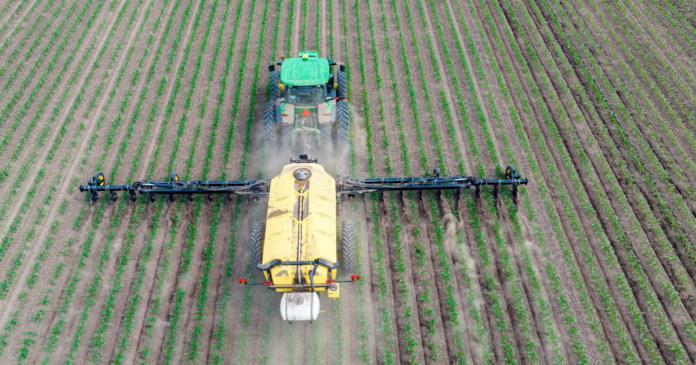“**Is the Government Missing the Mark on Agriculture Emission Reduction?**
The Auditor General’s latest review of the federal government’s emission reduction efforts in the agriculture sector has raised serious concerns about mismanagement and lack of transparency. The report, titled “Agriculture and Climate Change Mitigation,” zoomed in on Agri-Food Canada’s programs, particularly focusing on the government’s ambitious yet controversial 2030 target for farmers to slash fertilizer emissions by 30%.
**Consultation Woes and Stakeholder Confusion**
One of the glaring issues highlighted in the report was the absence of meaningful consultations with key stakeholders, including farmers and industry associations, before setting the fertilizer emission reduction target. This oversight led to widespread confusion within the sector, with some interpreting the target as a mandate to reduce fertilizer usage by 30% rather than a more nuanced approach of reducing emissions through improved application techniques.
**Lack of Clarity and Delayed Agreements**
Moreover, despite intentions to establish voluntary agreements with various stakeholders to meet the reduction target, the government had failed to materialize any such agreements by January 2024. This lack of concrete action fueled skepticism about the government’s commitment to achieving its emission reduction goals.
On top of that, the report unveiled that the examined programs failed to quantify expected greenhouse gas emission reductions or effectively track relevant data, contributing to a lack of direction and a hazy path towards meeting these targets.
**Diverging Perspectives: Food Security vs. Emission Reduction**
Criticism from farming groups, such as the Saskatchewan Association of Rural Municipalities, has been vocal and persistent. These groups argue that the fertilizer emissions target could lead to decreased agricultural yields, directly challenging the government’s expectation for farmers to boost production to meet global food demands.
The association’s concerns about the feasibility of the government’s agricultural climate plan, especially in the context of global food security goals, underscore a contentious dilemma. The clash between the imperative to eliminate world hunger by 2030, as championed by the United Nations, and Canada’s aggressive goal to increase agriculture exports by 55% by 2025 poses a complex challenge.
**A Call for Balanced Solutions and Comprehensive Strategies**
While emission reduction in agriculture is crucial for combating climate change, it must be approached prudently and in harmony with other vital goals, such as food security and sustainable farming practices. Striking a balance between environmental protection and agricultural productivity requires comprehensive strategies, transparent communication, and meaningful consultations with all stakeholders involved.
The report’s findings serve as a wake-up call for policymakers to reassess their approach, engage in constructive dialogues with farmers and industry representatives, and chart a clear path forward that aligns with both emission reduction targets and the broader needs of the agricultural sector.
In essence, the conundrum of agriculture emission reduction illustrates the intricate dance between environmental stewardship and food security, urging us to seek holistic solutions that cater to the pressing demands of a sustainable future.”
Reference















